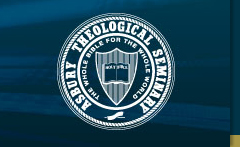This work is accessible only to Asbury Theological Seminary faculty, staff, and students. Off-Campus users should request the resource through our Library Loan system or contact the Help Desk for assistance.
-

The hours of destiny
Julian Claudius McPheeters
One of ten sermons delivered at the 72nd annual Indian Springs Holiness Camp Meeting. The final 10 minutes consists of prayer, exhortations to come to the altar, and invitational music.
-

The rapsody of holiness
Julian Claudius McPheeters
One of ten sermons delivered at the 72nd annual Indian Springs Holiness Camp Meeting.
-

How the Communists took over China, part 1
Leslie Millin
A first-hand account by a Canadian Missionary of the Communist takeover in Southern China describing tortures and atrocities committed by the new government.
-

How the Communists took over China, part 2
Leslie Millin
A first-hand account by a Canadian Missionary of the Communist takeover in Southern China describing tortures and atrocities committed by the new government.
-

A Russian slave
John Noble
Chronicles the speaker's experiences as a prisoner in Communist occupied Germany, after World War II, and in a Soviet slave labor camp in Siberia, and how he became a Christian during his incarceration.
-

Melanchthon and Bucer
Wilhelm Pauck
"This volume contains two highly important writings of the period of the Protestant Reformation. Melanchthon's book 'Loci communes theologici', the first Protestant dogmatics, as it is sometimes called, represents the work of a young man writing at the very beginning of the Lutheran Reformation. Bucer's work 'On the Kingdom of Christ', the first Protestant treatise on social ethics, is the product of a mature man standing on the verge of old age. It reflects the experience of a lifetime in manifold labors for an actual reformation of the Church as well as of society." page xix
The Library of Christian Classics;Vol. XIX
-

The United Methodist newscope
United Methodist Church
"The national weekly newsletter for United Methodists."
-

As a Little Child: Children in the Theology of John Wesley
Peter Benzie
What does it mean to teach, feed, and provide for children in a Wesleyan sense? How can this be done in a way which is faithful to Wesleyan doctrine and theology? Indeed is it even possible? Is teaching, feeding, and providing for children a Wesleyan thing to do? Would John Wesley, the founder of the revival movement we now know as Methodism, be supportive of bringing lost children into the fold and into the fullness of the stature of Christ? In other words, what should the theological foundation be for the ministry of those, especially those in the Wesleyan tradition, called to minister to children in the twenty-first century? These are some of the questions which this thesis provides answers to as it considers two fundamental questions. The first – whether, and if so how were, children to be found in the theology of John Wesley? The second – what lessons can Wesley teach those called to children’s ministry in the twenty-first century? Through considering the writings of John Wesley, as well as the work of other scholars, this thesis finds that children were evident in his theology. Wesley is shown to have undertaken something akin to child theology when he, for instance, allowed his theology to be informed and changed by the many instances of childhood faith he witnessed. He is shown to be a man who treasured children as a gift from God, who, he believed entrusts parents and teachers with the responsibility of educating them so that they can live lives of true holiness, that is, loving God and their neighbour. As an example of child theology it considers Wesley’s theological views regarding children and how they informed his educational endeavours in order to identify six significant lessons for those called by God to minister to children through the twenty-first century Christian church. The first five of those lessons are 1) seek help, and learn, from others; 2) ensure that the theological viewpoint of the parent body (usually the local church) informs the theological views regarding children which are to be played out in the practical ministry to children; 3) know the goal which is to be achieved and allow that to inform ministry praxis including programming, personnel selection and methodology; 4) actively support the work of others; and 5) be prepared for criticism and opposition. The sixth lesson that Wesley brings is the key one – do not place any limits on God. Rather those called to children’s ministry in the twenty-first century should be ready to work with God as an agent of God’s prevenient grace as God draws children into right relationship with himself. In the process they are to disciple those children in a life of holiness. Along the way this thesis shows that not only would John Wesley be supportive of bringing lost children into the fold and into the fullness of the stature of Christ in the twenty-first century, he would require it to be done as a matter of priority and urgency.

















